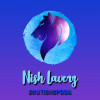How to start off a book?
How to start off a book?
To those who have written a book or so, can you give me tricks and tips on how to start it? It would help me a lot. Thanks!Writing a book can be hard and there are many different answers to the question.
The most important thing to do at the start of any Story is to set the scene. Show the reader where the story is located, don't just tell them its in Upstate New York. Describe the location,use abstract words that the reader can interpret.
Using action to set the scene for a story is a great hook for the reader. Take a look at the snippet below and using what I've said in my answer see if you can improve it with some descriptive words.
'As the ESS Destiny pulled into orbit around the large earth like planet they were scheduled to survey, a dark ship appeared and started firing on them without warning.
’Red Alert! All command staff report to the Battle Command Centre‘ came the voice over the ship wide intercom. The Ship's command crew left their posts and headed for the Battle Command Centre.'What I've heard my whole life and believe in myself is "the hook." This doesn't mean you have to start in the middle of action or with a bang, but keep in mind you want readers interested from the start. Make the beginning representative of the book's genre or writing style. Such as, you wouldn't start a traditional romance with a car chase (unless, perhaps, the man who crashes into the woman's car is her future love...) or begin an action novel with a slow-paced love scene.
Maybe think about what you find to be interesting about your character and then begin by showing off that character trait or memory or relationship, etc. You could set a spooky scene or a too-good-to-be-true scene that leaves the reader waiting for something bad to happen and they read on to find out what that is. Etc.
My other piece of advice is keep the beginning simple. As a reader I quickly lose interest in a book that tries to throw too many characters into the mix at once or overloads me with names of places in a few pages. Let us get to know the main few characters (or even just *the* main character!) first, for example.- sheilamyersposted 10 years ago
0
I agree with the others. You need to grab the reader's attention from the beginning.
I usually choose to write a few paragraphs which introduce the main character. Those aren't always packed with action, but serve to set up some of the elements of the plot. For example, in my second novel in my series, the main character is sitting at home thinking about the next day being his first day back at work after being shot. I have him talking to his wife about his doubts he has about whether or not he can still trust his instincts when it comes to doing his job. The rest of the book is all about the detectives working a serial murder case, but also shows the main character learning more about himself.
You can throw the reader right into the action or "tease" them to get them excited about what will come next. As long as you grab the reader's attention, how you do it is up to you. My suggestion would be to look at some books in the genre of your story and see the different ways the author's start those books. That might give you an idea what method would work best for your particular story. Hello

You have all but the first paragraph to capture the reader, the rest of the story should back it up.
Just like a good movie: it begins (usually) with the most poignant/climatic part of the movie's (premise) and the storytelling goes on from there.
Towards the end, the story should have some element (if not all) of what happened at the beginning-from that first paragraph to tell WHY that thing happened at the beginning, or WHAT became of it--that lead to the ending (like a good movie does).
Pay attention to how good movies begin and end.
Writing a good beginning is pretty much done the same way.
Hope that helps.I would say that you should start simple. While the hook is important, you don't really need to worry about it when writing the first draft. One of the biggest pitfalls when setting out to write a novel is how easy it is to overwhelm yourself. If you think "I'm going to write a novel" you'll fall short every time. But, if you think "I'm going to write this scene" suddenly the task before you isn't insurmountable.
And that applies to the whole book as well. Bite off what you can chew, just make sure that you're always taking bites and it will eventually be done. It's also important that you write what you want to write most, not what you think readers and/or critics would want to read. Only the book that you want to read will get finished.Many people want to try their hand at writing a book but most will never manage it. This Article looks at the best way to get your book going. read more
Related Discussions
- 16
Where to start on writing a book? Several questions.
by Peeples 11 years ago
Where to start on writing a book? Several questions.I want to write a book (yes I know seems to be the popular thing right now). I really don't care if I sell one copy. This is more for myself since I have been wanting to do so for many years. Where do I begin when I am not the best of writers? Do...
- 53
Turning a short story into a novel length work.
by Chris Mills 9 years ago
Beginning today, I am taking a 26,000 word story I wrote nearly a year ago and expanding it to novel length, whatever that may be. I've tried to let this story go, but it keeps coming back, asking to be rewritten and expanded. I truly love the story. I know, I wrote it, so of...
- 17
How do you know when you are reading a good book at the beginning of the story?
by Kenna McHugh 11 years ago
How do you know when you are reading a good book at the beginning of the story?
- 31
Creative writing. Some help please?
by earnestshub 12 years ago
Some time back I tried my hand at creative writing. I tried to use my imagination and write a story based on a real event from my distant past.A friend of mine is a creative writer and I enjoy reading his stuff, and he told me to lay it out better.My problem with writing was I could not move away...
- 18
Writers And Aspiring Writers Please Help Me, THANK YOU SO MUCH?
by FelineFrance 12 years ago
Okay, here is my problem I try to learn every freakin' detail about my main character before I start writing. I am very afraid of criticism and allowing others to read my work. I wish there was a way to make myself completely anonymous. Should I seek advice or criticism before I start writing? I...
- 7
how do you start to write a novel???/
by margaretmcx 13 years ago
how do you start to write a novel???/











